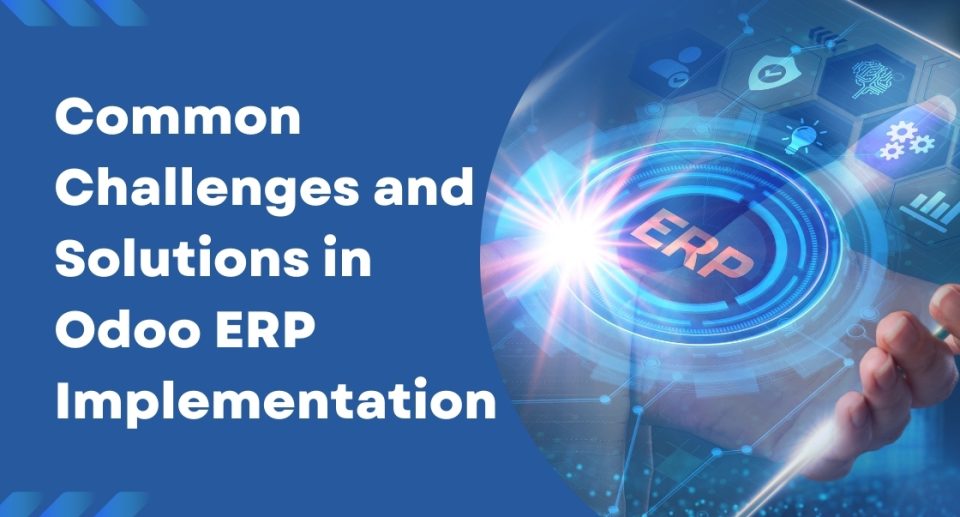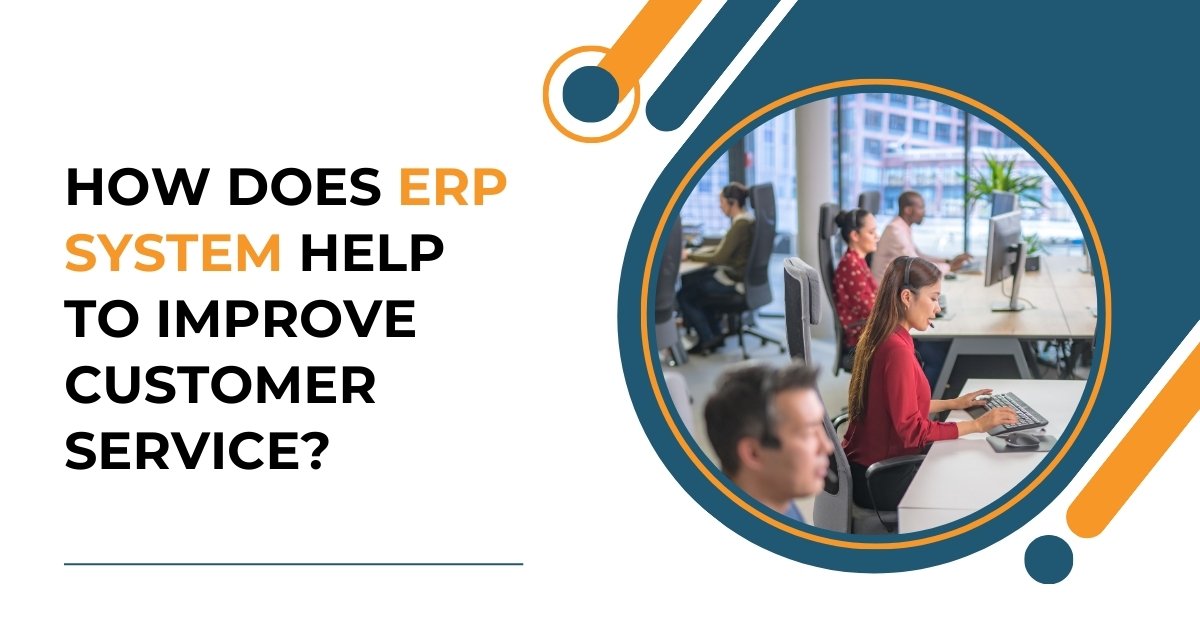In today’s fast-paced business environment, companies are always on the lookout for tools that can streamline operations, improve efficiency, and boost profitability. Enterprise Resource Planning (ERP) systems, like Odoo, have become increasingly popular because they offer an integrated platform to manage various business processes. From accounting and human resources to supply chain management and customer relationship management (CRM), Odoo ERP provides a comprehensive solution that can be tailored to fit the specific needs of any business.
Why Does Your Business Need an Odoo Platform?
Before diving into the challenges, it’s important to understand why your business might need an Odoo platform in the first place. Odoo ERP is a versatile and powerful tool that offers several benefits:
1. Integrated System:
Odoo provides an all-in-one platform where different departments can operate in sync. This integration reduces silos and improves communication and collaboration across the organization.
2. Scalability:
As your business grows, Odoo can easily scale with you. It offers a range of modules that can be added as needed, ensuring that your ERP system evolves alongside your business. This flexibility allows you to tailor the system to accommodate new processes, departments, or locations without the need for a complete overhaul.
3. Customization:
Odoo’s open-source nature allows for extensive customization. This means that businesses can tailor the system to meet their unique requirements, rather than being forced to adapt to a one-size-fits-all solution.
4. Cost-Effective:
Compared to other ERP systems, Odoo is often more affordable, especially for small to medium-sized businesses. Its modular pricing structure allows companies to pay for only what they need.
5. User-Friendly Interface:
Odoo is designed with the user in mind, offering an intuitive interface that makes it easier for employees to learn and use the system effectively. Its user-friendly design minimizes the learning curve and enhances productivity by providing a streamlined, accessible experience.
Here are Some Challenges and Solutions in Odoo ERP Implementation
1. Inadequate Requirement Analysis and Planning
Challenge:
One of the most common pitfalls in Odoo ERP implementation is the lack of thorough requirement analysis and planning. Many businesses rush into the implementation phase without fully understanding their needs or the capabilities of the Odoo platform. This can lead to a mismatch between the system’s features and the business’s actual requirements, resulting in inefficiencies and frustration.
Solution:
The key to successful implementation starts with a comprehensive requirement analysis. Businesses should take the time to thoroughly evaluate their current processes, identify pain points, and determine what they want to achieve with the Odoo ERP system. Engaging with key stakeholders from different departments is crucial in this phase to ensure all needs are considered.
2. Customization Complexity
Challenge:
While Odoo’s ability to be customized is one of its greatest strengths, it can also be a source of complexity. Over-customization can lead to a system that is difficult to maintain and upgrade, as well as one that deviates too far from the core functionality of Odoo, making future updates and support more challenging.
Solution:
Customization should be approached with caution. Businesses should prioritize customizations that provide significant value and address specific needs. It’s important to work closely with experienced Odoo developers who can advise on best practices and ensure that customizations are scalable and maintainable.Before making any customizations, consider whether the desired functionality can be achieved using existing Odoo modules or by making minor adjustments to the out-of-the-box features.
3. Managing Change in Business Processes
Challenge:
Implementing Odoo ERP often requires changes to existing business processes. This can create confusion and resistance among employees who are accustomed to the old ways of doing things. The challenge lies in managing these changes effectively to ensure a smooth transition.
Solution:
Change management is key. Start by clearly communicating the reasons for the changes and how they will benefit the business. Provide training that focuses not just on using the new system, but also on understanding the new processes. Engage with employees at all levels to get their feedback and address any concerns they might have. Establish a change management team that can guide the organization through the transition and ensure that everyone is on board.
4. Not Receiving End-User Support
Challenge:
A successful Odoo ERP implementation depends on the active support and involvement of end-users. However, if end-users do not receive adequate support during and after the implementation, they may struggle to use the system effectively, leading to low adoption rates and reduced productivity.
Solution:
Provide comprehensive training programs tailored to different user roles to ensure that everyone knows how to use the Odoo system effectively. Establish a support system that includes help desks, online resources, and user communities to assist users with any issues they encounter. Consider appointing “super users” or internal champions who can provide peer-to-peer support within departments. Regularly gather feedback from end-users to identify areas where additional support may be needed and continuously improve the support system based on their input.
5. User Adoption Resistance
Challenge:
Introducing a new ERP system like Odoo can be met with resistance from employees who are accustomed to the existing processes. This resistance can stem from a fear of change, concerns about job security, or simply the comfort of sticking with familiar tools.
Solution:
To overcome user adoption resistance, it’s important to involve employees early in the implementation process. Communicate the benefits of Odoo ERP and how it will make their jobs easier and more efficient. Providing comprehensive training and support is also crucial. This includes hands-on training sessions, user manuals, and ongoing support to help employees feel confident in using the new system.
6. Integration with Existing Systems
Challenge:
Many businesses already use a variety of software tools to manage different aspects of their operations. Integrating these existing systems with Odoo can be a significant challenge, especially if the tools are outdated or not designed to work with an ERP system. Poor integration can lead to data silos, duplicate entries, and inefficient workflows.
Solution:
Successful integration requires careful planning and the right tools. Start by conducting a thorough assessment of the existing systems to determine which ones need to be integrated with Odoo. Identify potential compatibility issues and plan for how to address them.Odoo offers a range of integration tools and APIs that can facilitate the process.
7. Project Management and Coordination
Challenge:
Implementing Odoo ERP is a complex project that requires careful management and coordination across multiple teams and departments. Without proper project management, the implementation can become disorganized, leading to missed deadlines and budget overruns. Furthermore, a lack of clear communication and defined responsibilities can result in critical tasks being overlooked, causing delays in the overall project timeline.
Solution:
Appoint a dedicated project manager with experience in ERP implementations. This person should be responsible for overseeing the project, coordinating between different teams, and ensuring that the implementation stays on track. Utilize project management tools to monitor progress, allocate resources, and manage risks. Regular status meetings with stakeholders can help keep everyone informed and aligned on the project’s goals.
8. Data Migration and Cleanup
Challenge:
Data migration from legacy systems to Odoo ERP is often a significant challenge. The data may be outdated, inconsistent, or incomplete, making the migration process difficult and time-consuming. Additionally, differing data formats and structures between the legacy system and Odoo can complicate the process, requiring extensive data mapping and transformation.
Solution:
Begin with a thorough data audit to identify any issues with the existing data. Clean up and standardize the data before migration to ensure accuracy and consistency. Use Odoo’s data migration tools and perform multiple test migrations to catch any potential problems early. It’s also important to have a backup plan in place in case something goes wrong during the migration.
9. Ensuring System Performance and Reliability
Challenge:
As businesses depend more on their ERP system for day-to-day operations, ensuring system performance and reliability becomes crucial. Performance issues or system downtime can disrupt operations and affect productivity. Inconsistent system speed or unexpected outages can lead to delays in critical business processes, resulting in missed deadlines and dissatisfied customers.
Solution:
Regularly monitor the system’s performance to identify and address any bottlenecks. Implement load balancing and redundancy measures to ensure that the system can handle high traffic and remain operational during peak times. It’s also important to schedule regular maintenance and updates to keep the system running smoothly. Consider using Odoo’s cloud hosting options for better scalability and reliability.
10. Insufficient Training and Support
Challenge:
Even the most well-designed ERP system will fail if users are not adequately trained and supported. Insufficient training can lead to errors, frustration, and ultimately, a lack of confidence in the system. This can result in low adoption rates and a failure to realize the full benefits of the Odoo platform.
Solution:
Invest in comprehensive training programs that are tailored to the needs of different users within the organization. Training should be hands-on and practical, allowing users to learn by doing. Offering a variety of training formats such as in-person workshops, online tutorials, and written guides can cater to different learning styles.Encouraging a culture of continuous learning and improvement can help users stay engaged with the system and make the most of its capabilities.
11. Managing Costs and Budget
Challenge:
ERP implementations can be expensive, and costs can quickly spiral out of control if not carefully managed. Unexpected expenses related to customization, integration, or training can strain the budget. Additionally, unanticipated delays or technical issues can lead to increased costs and extended project timelines. Without a detailed and realistic budget, businesses may struggle to accommodate these unforeseen expenses, potentially leading to project compromises or incomplete implementations.
Solution:
Develop a detailed budget at the outset of the project and include a contingency fund for unforeseen expenses. Regularly track costs against the budget and adjust as necessary. Prioritize spending on high-impact areas such as customization, training, and support. Consider starting with a phased implementation to spread out costs over time.
12. Scalability Concern
Challenge:
As businesses grow, their needs evolve. A common concern with ERP systems, including Odoo, is whether the system will be able to scale with the business. An ERP system that cannot accommodate growth can become a bottleneck, leading to inefficiencies and the need for costly upgrades or replacements.
Solution:
Scalability should be a key consideration from the outset. Odoo is designed to be scalable, but it’s important to implement the system in a way that allows for future growth. This means selecting modules and customizations that are flexible and can be expanded as needed.
Regularly reviewing the system’s performance and capacity can help identify potential scalability issues before they become problematic. Working with an experienced Odoo partner who understands the long-term needs of your business can also ensure that the system is set up to grow with you.
13. Data Security and Regulatory Compliance
Challenge:
With the increasing importance of data security and regulatory compliance, businesses must ensure that their ERP system meets these requirements. Implementing Odoo ERP without addressing security and compliance can lead to vulnerabilities and legal risks. Sensitive data could be exposed to unauthorized access, and non-compliance with industry regulations could result in hefty fines and legal penalties.
Solution:
Data security should be a top priority throughout the implementation process. Odoo offers several security features, but it’s important to configure them correctly and implement additional measures as needed. This may include encryption, access controls, and regular security audits.
Compliance with industry-specific regulations, such as GDPR for businesses operating in Europe, must also be considered. Ensure that Odoo is configured to meet these regulatory requirements and that users are trained on compliance best practices.
14. Integration Hurdles with Third-Party Applications
Challenge:
Integrating Odoo ERP with existing third-party applications, such as CRM systems, e-commerce platforms, or payment gateways, can be complex and time-consuming. Compatibility issues, data synchronization problems, and differing data formats can create significant challenges during the integration process.
Solution:
Start by conducting a thorough compatibility assessment of the third-party applications you plan to integrate with Odoo ERP. Utilize Odoo’s built-in connectors and APIs to facilitate the integration process. If necessary, develop custom connectors to bridge any gaps. Regularly test the integration to ensure that data is being accurately synchronized and that all systems are working together seamlessly. It’s also important to involve experts with experience in Odoo integrations to address any potential issues early on.
15. Vendor Selection and Partnership
Challenge:
Selecting the right vendor or implementation partner is critical for the success of your Odoo ERP project. A poor choice can result in subpar implementation, delayed timelines, and increased costs. Moreover, an inexperienced partner might lack the expertise to customize the system to meet your specific business needs, leading to a less efficient solution.
Solution:
Implementing Odoo ERP can be challenging, but with the help of experienced professionals offering Odoo development services in Pune, businesses can overcome difficulties like data migration, customization, and user adoption. These experts tailor Odoo ERP to fit specific business needs, ensuring a smoother transition and maximizing the system’s benefits. Selecting the right service provider is essential to unlocking the full potential of Odoo ERP for enhanced efficiency and growth..
In Conclusion
Implementing Odoo ERP can bring significant benefits to your business, but it is not without its challenges. From inadequate requirement analysis and customization complexity to user adoption resistance and integration hurdles, navigating these issues requires a thoughtful and proactive approach.Addressing these common challenges with well-planned solutions such as thorough data migration strategies, robust training programs, and effective project management can significantly enhance the success of your ERP implementation.





